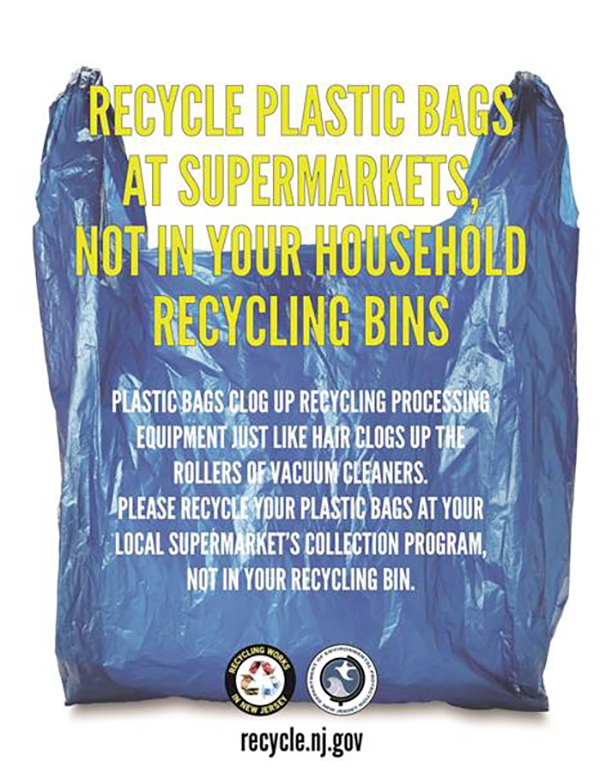Recycling contamination is a big problem in New Jersey, and plastic bags are among the worst offenders. Contamination happens when items that don’t belong in your home’s recycling bin are placed there. Unfortunately, too many of us put our recyclables in plastic bags to recycle them, and that’s a bad thing.
According to the U.S. Environmental Protection Agency, Americans use 380 million plastic bags and wraps each year, many of which get landfilled, which is not the best place for them. They end up everywhere—our streets, parks, waterways… and since it takes them a long time to degrade, they’re here to stay as litter or worse, and pose a real threat to the environment. Some animals mistake them for food or get entangled in them.
In New Jersey, plastic shopping bags are recyclable—but not in your curbside bin.
When they get into your municipality’s recycling stream, they can clog up or damage recycling center processing equipment the way hair clogs up the rollers of a vacuum. This causes delays and slows down the recycling process, making it more expensive for your community to recycle.
Other stretchy plastics, such as produce and bread bags, dry cleaning bags, newspaper sleeves, paper towel/toilet paper overwrap and other plastic film packaging can also clog up recycling processing equipment. These stretchy plastics should not be placed into your curbside recycling bin.
So how do you properly handle all those plastic bags?
Many stores and other entities accept plastic bags and other stretchy plastic for recycling at in-store collection bins. Contact your local supermarket to find out if they have a plastic bag recycling program, or suggest that they start one!
When it’s recycled, your plastic bag could become plastic lumber to make park benches, decks, fences or playground equipment, but best of all, by recycling your bags properly, you’re keeping them out of our environment.
If you’d like to cut back on using plastic bags, consider using reusable shopping bags.
Thank you for taking these steps to stopping plastic bag contamination in New Jersey and ensuring that the Garden State is greener for all of us.


